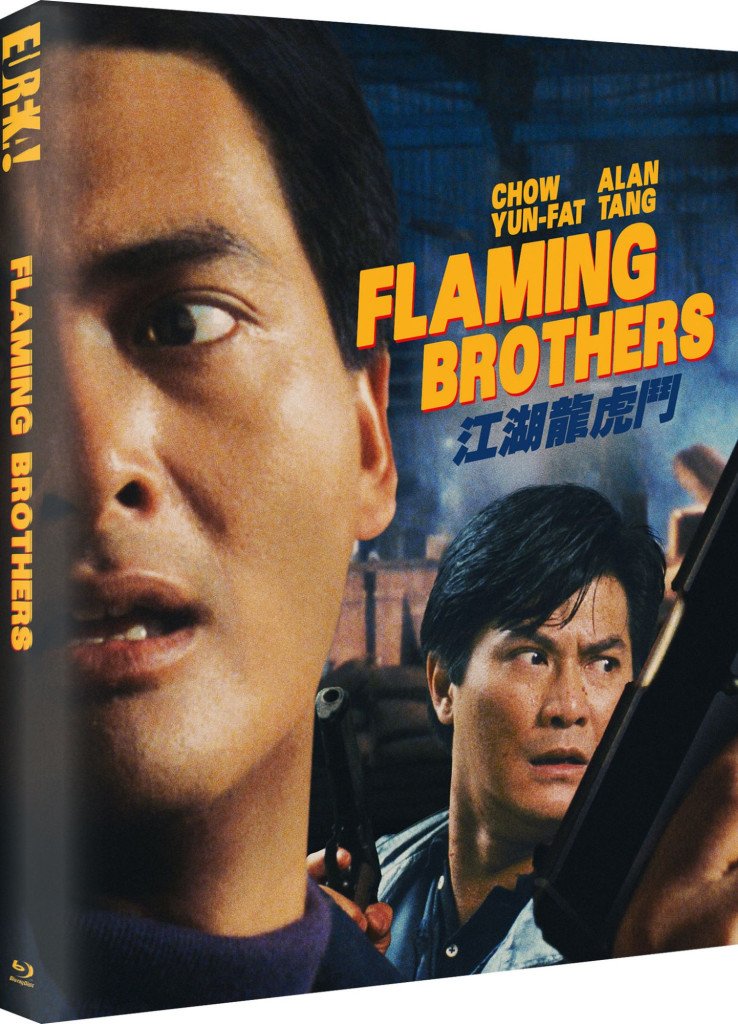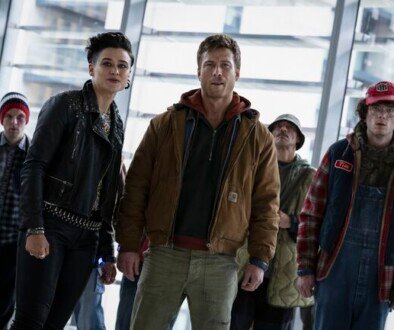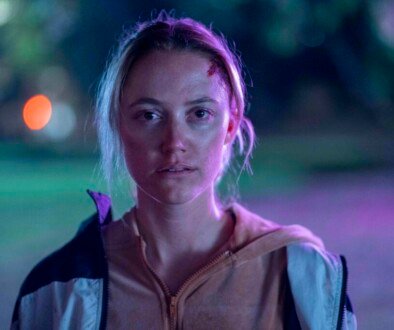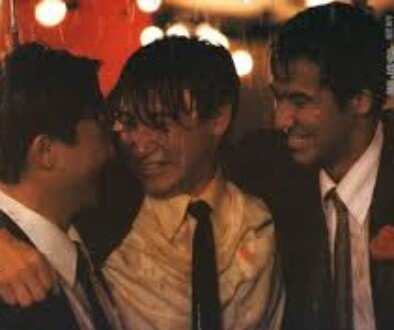FLAMING BROTHERS Eureka Blu-Ray Review: Keeping Love And Loyalty Alive In Joe Cheung’s Gangster Classic
• Tap here to read about the disc extras.
I’ve been enjoying the heck out of my run of late with Hong Kong cinema throwbacks. Things are gonna get a little weirder with at least one title that was recently sent to me but for now, we’re gonna keep it a hundred with all things pertinent to modern crime thrills and heroic bloodshed of the 1980s.
For this, we turn to Flaming Brothers, starring Chow Yun-Fat and Alan Tang, the latter who also serves as producer on the pic. Celebrated auteur Joe Cheung (Rosa, Return Engagement) directs from a script written by Wong Kar-Wai and Jeffrey Lau, which follows best friends Wai-Lun and Ho-Tien, orphans who’ve risen to fruition as gangsters in Macau into their adult years.
Tempers flare as the two are challenged by a rival gangster, resulting in a fatal mistake that binds Wai-Lun with his victim’s employer, notorious crimeboss Kao (Patrick Tse). With Wai-Lun coordinating an arms sale overseas in Thailand, the two friends also find themselves peeling off into romantic territory, between Wai-Lun’s pursuits of a beautiful lounge singer named Jenny (Jenny Tseng), and Ho-Tien’s surprise reunion with Ka-Hsi (Patricia Ha), who used to sneak rice to him when they were kids.
The mid-section of the film tracks our titular brothers as they balance between business and personal shenanigans, leading up to the main inflection point that finds both gangsters going their seperate ways when interests start to clash. However, it’s not until Kao suddenly bogards his deal with Wai-Lun, setting in motion a deadly conflict of interest that will not only bring unwarranted casualties, but will test the true limits of brotherhood and loyalty in a final showdown.
I was taken a little bit aback by some of the film’s pointed banter, noting several of the more homophobic jabs in the script. Invaribaly, there’s plenty here that hasn’t aged well, while much of the story surrounding the romances between Wai-Lun and Ho-Tien are pretty much digestible. Both Tang and Chow lend equal charisma and depth to their characters making them a powerhouse duo on screen. The film also introduces James Yi Lui who plays Richard, a member of the gang led by Wai-Lun and Ho-Tien, and even celebrated actor Phillip Chan who appears in just a few scenes as a stern cop with his own stake in involving himself with our protagonists.
The core focus of the film finally starts aligning well into the second half as the story gets much more dramatic, and violent; Gun battles are prominent throughout alongside a small touch of fisticuffs, some vehicular manslaughter and even a tuk-tuk chase on the streets of Bangkok. It’s precisely what you’d expect from a Hong Kong action film of its era, and while it doesn’t necessarily hold a candle to a lot of Chow’s more signature work, it does cover the bases.

Eureka’s Flaming Brothers is presented in 1080p from a 2K restoration and offers plenty in features. You get optional English dub and Cantonese audio tracks, and a commentary track featuring Mike Leeder and Arne Venema who chew up loads of trivia on the film, the cast and crew and production. Venema continues the extras in a half-hour feature taking viewers on a journey through all the various locations where the movie was shot and highlights many of the changes in locals between now and twenty eight years ago.
One additional feature for the disc is an archival interview with the film’s director; I dove into the disc three weeks prior to its release and upon analyzing, noticed the disc I was sent wouldn’t allow playback for Cheung’s interview. This allowed me enough time to contact the company that sent me the disc and alert them of the defect and they promptly responded, noting the issue and stating they would get back to me with an update as soon as possible.
The disc rounds out with a three-minute-plus alternate credit role in English text, and a classic Hong Kong trailer. To top it all off, Eureka’s release of the film comes packaged in an O-card slipcase with artwork by Time Tomorrow, and includes a written essay by Camille Zaurin which expands on Hong Kong cinema, and the legacy of the heroic bloodshed genre.
Native New Yorker. Been writing for a long time now, and I enjoy what I do. Be nice to me!





